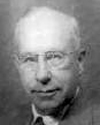A Quote by Noam Chomsky
The most effective way to restrict democracy is to transfer decision-making from the public arena to unaccountable institutions: kings and princes, priestly castes, military juntas, party dictatorships, or modern corporations.
Related Quotes
In Latin America, in the past, it was almost impossible to guarantee democracy. There were military dictatorships, and nowadays there are not so many military dictatorships. Although we have a dictator in Honduras, as a result of a coup, now as a president, he is almost the only one I would say. But again led or managed, gestated by the U.S. government.
But, that’s the whole point of corporatization - to try to remove the public from making decisions over their own fate, to limit the public arena, to control opinion, to make sure that the fundamental decisions that determine how the world is going to be run - which includes production, commerce, distribution, thought, social policy, foreign policy, everything - are not in the hands of the public, but rather in the hands of highly concentrated private power. In effect, tyranny unaccountable to the public.
It is equally unreasonable to run a university as a "participatory democracy," the approach to governance that once existed in Europe. That approach in European institutions of higher learning was appealing to professors because it was democratic. But those institutions also suffered because they lacked an executive decision-making process; making changes became virtually impossible.
Democracy entails a correlation between the public interest as expressed by a majority of the population and the governmental policies that affect them. The term encompasses various manifestations, including direct, participatory and representative democracy, but Governments must be responsive to people and not to special interests such as the military-industrial complex, financial bankers and transnational corporations. Democracy is inclusive and does not privilege an anthropological aristocracy.
Democracy no longer means what it was meant to. It has been taken back into the workshop. Each of its institutions has been hollowed out, and it has been returned to us as a vehicle for the free market, of the corporations. For the corporations, by the corporations. Even if we do vote, we should just spend less time and intellectual energy on our choices and keep our eye on the ball.
Institutions work this way. A son is murdered by the police, and nothing is done. The institutions send the victim's family on a merry-go-round, going from one agency to another, until they wear out and give up. this is a very effective way to beat down poor and oppressed people, who do not have the time to prosecute their cases. Time is money to poor people. To go to Sacramento means loss of a day's pay - often a loss of job. If this is a democracy, obviously it is a bourgeois democracy limited to the middle and upper classes. Only they can afford to participate in it.
When the Founders thought of democracy, they saw democracy in the political sphere - a sphere strictly limited by the Constitution's well-defined and enumerated powers given the federal government. Substituting democratic decision making for what should be private decision making is nothing less than tyranny dressed up.
Education in democracy must be carried on within the Party so that members can understand the meaning of democratic life, the meaning of the relationship between democracy and centralism, and the way in which democratic centralism should be put into practice. Only in this way can we really extend democracy within the Party and at the same time avoid ultra-democracy and the laissez-faire that destroys discipline.




































